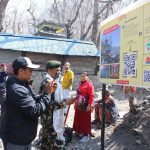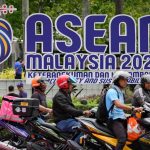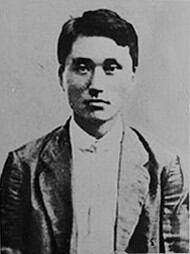The Life and Legacy of Yi Kwang-su
Yi Kwang-su, known by his pen name Chunwon, was a journalist and novelist who lived during the colonial period in Korea. His death remained shrouded in mystery until 1991, when the exact date was finally confirmed. According to records, he died on October 25, 1950, in Gogae-dong, Manpo-myeon, Kanggye County, South Pyongan Province, after being abducted by the North Korean People’s Army following the Korean War. He succumbed to illness, likely exacerbated by the physical strain of fleeing U.S. airstrikes.
His grave was later moved to Wonsan-ri, Samseok District, Pyongyang. This revelation came after his third son, Lee Young-geun, visited Pyongyang from July 20 to 30, 1991, to pay his respects. Lee described the location as a sunny mountainside with six other tombs, each marked with marble headstones and well-kept grass.
The circumstances surrounding Yi’s death were tragic. He had suffered from tuberculosis, which worsened due to exhaustion while being forced to flee to the cave-ridden area of Manpo Gogae-ri. His grave was relocated from Manpo around 1970, according to sources. A North Korean source explained that despite his collaboration with the Japanese, Yi’s involvement in the independence movement during the Shanghai era led to his honored status.
Controversial Legacy and Literary Contributions
Yi Kwang-su is often described as a complex figure in Korean literary history. Scholars like Jang Seok-ju and Kim Hyun have called him “a very unfortunate happiness embedded in our literary history” and “a wound that festers the more it is touched.” He was an independence activist who drafted the February 8 Independence Declaration and worked with the Provisional Government of the Republic of Korea in Shanghai. He also authored The Heartless, the first modern Korean-language novel.
However, his legacy is complicated by his actions during the late Japanese colonial period. He adopted a Japanese name and encouraged Korean youth to enlist as soldiers for Imperial Japan, leading to his arrest by the Anti-National Activities Investigation Committee in 1949. Despite this, contemporaries argued that Yi could not be simply labeled a “collaborator.”
Kim Yong-jun, a professor emeritus at Korea University, reflected on this in the autumn 2005 issue of Philosophy and Reality. He wrote that no matter how others criticized Chunwon Yi Kwang-su as a pro-Japanese writer, he could not blame him. Instead, he credited Chunwon with helping him become a Korean person from a loyal subject of the Japanese Empire.
Perspectives from Intellectuals and Historians
Ham Seok-heon, a mentor to Kim Yong-jun, lamented the fact that those who cried out for the nation failed to continue their voices. He believed that the sorrow and questioning surrounding figures like Yukdong and Chunwon stemmed from their powerful yet stifled cries.
In 2014, Kim Woo-jeon, then 92 years old and former chairman of the Gwangbokhoe, recalled hearing Yi Kwang-su give a speech urging students to enlist as soldiers while studying in Kyoto. He did not view Yi as pro-Japanese or bad but felt a sense of national consciousness from him. Although he could not speak generally about the issue of pro-Japanese collaborators, he insisted that Yi’s encouragement of student enlistment was not as clear-cut as critics claimed.
Professor emeritus Kim Dong-gil of Yonsei University noted that the concept of pro-Japanese collaborators differs between those who lived through the Japanese colonial era and those who did not. He expressed hope for a proper historical evaluation of Chunwon Yi Kwang-su at any point in Korean history.
Ongoing Debate and Recognition
Despite efforts to honor his contributions, consensus on Yi Kwang-su’s legacy remains unresolved. In 2016, the Korean Writers’ Association announced plans to establish literary awards in honor of Yukdong Choi Nam-seon and Chunwon Yi Kwang-su but withdrew the decision after protests against what some saw as anachronistic glorification of collaboration.
U.S. Army intelligence documents from 1944 highlighted Yi’s background as a well-educated writer and journalist associated with Ahn Chang-ho. He served as president of the Chosun Literary Association and was active in youth organizations. However, after being imprisoned and tortured by the Japanese in the 1930s, he faced criticism for collaborating with the Japanese, which diminished his influence.
Cultural Impact and Final Words
Beyond his political and literary contributions, Yi Kwang-su composed the school song for Osan School in 1910. Many talents produced by Osan School contributed significantly to society by singing this song:
“Your hands are skillful and your strength is great
You handle fire and shape stone
You will build a new world
You are truly a child of the five provinces.”
This final piece of work highlights his enduring impact on Korean culture and education.










